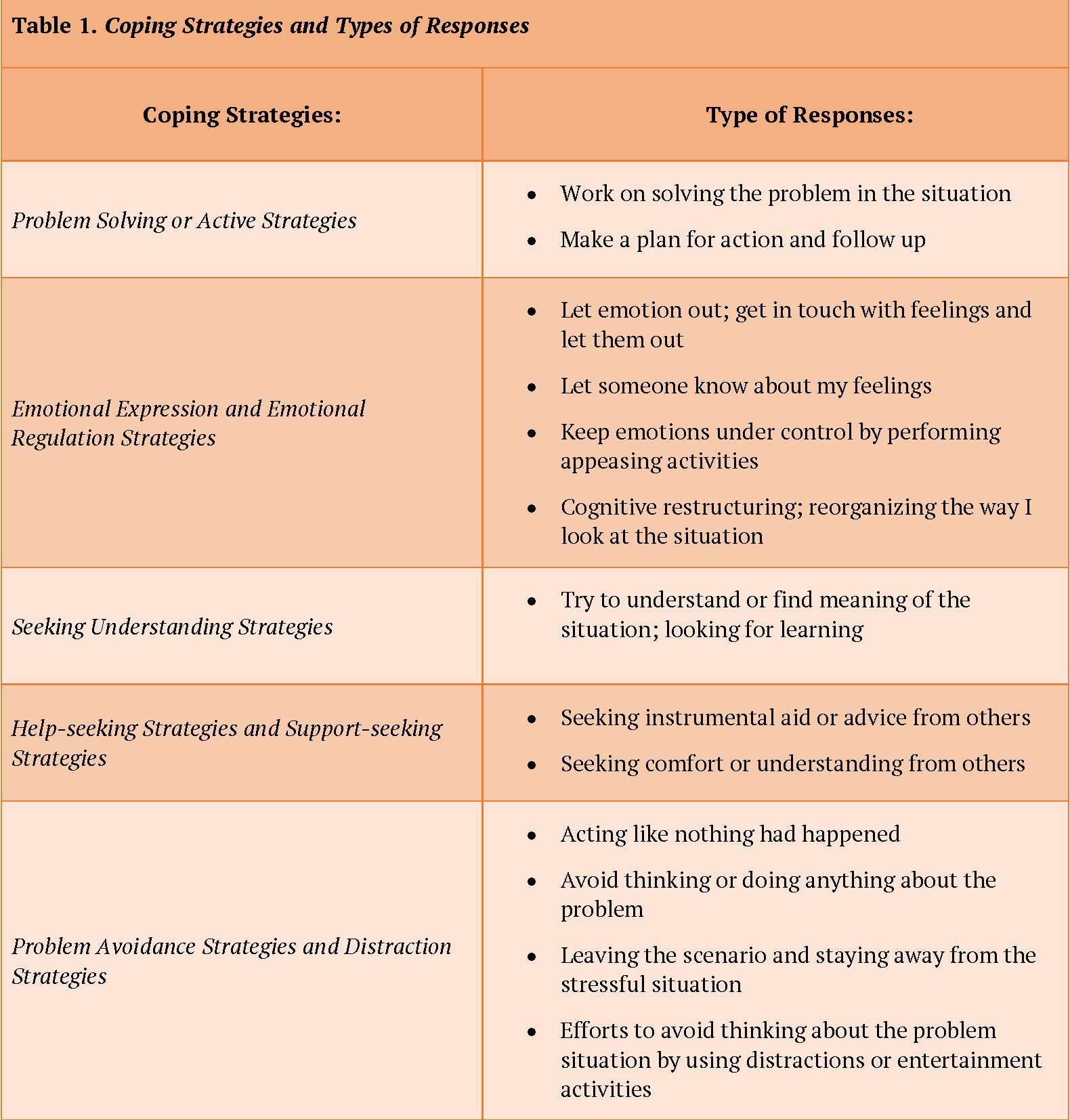The Psychological Connection
5.8 Coping Strategies and Response to Stress
Photo by Anna Dziubinska is licensed under the Unsplash LicenseTo deal with stress in your life, it is important to figure out where that stress originates and notice how you tend to react to it. Lazarus and Folkman (1984) have been among the most influential psychologists in the stress and coping field, and they defined coping as efforts to manage demands that could exceed our resources. It is important to highlight from this definition that when a person perceives a life circumstance as taxing and exceeding the resources they have, this person will experience stress. Therefore, coping involves your efforts to manage stress, which is illustrated in Figure 1.

Coping Defined
Lazarus and Folkman (1984) felt that when humans perceive a life circumstance as taxing and exceeding their resources, stress will be experienced, which we have already defined in the prior section as an overload of incoming information into a system. Therefore, coping involves persons’ efforts to manage stress, whether the process of dealing with stress is adaptive or not (Lazarus, 1993). When we talk about coping, we will need to consider the intensity of the stressor, the context of coping, and an individual’s appraisal of coping expectations.
Coping Types
Research on coping has usually found five types of coping styles (Clarke, 2006; Skinner, et al., 2003; Folkman & Moskowitz, 2005). These include the following: (1) problem-focused coping style involves addressing the problem situation by taking direct acting, planning or thinking of ways to solve the problem, (2) emotion-focused coping style involves expressing feelings or engaging in emotional release activities such as exercising or practicing meditation, (3) seeking-understanding coping style refers to finding understanding of the problem and looking for a meaning of the experience, and (4) seeking help involves using others as a resource to solve the problem. Finally, people might respond to stressors by (5) avoiding the problem and trying to stay away from the problem or potential solution to the problem.
Coping Strategies
Coping strategies are the choices that a person makes in order to respond to a stressor. A strategy can be adaptive (effective) or maladaptive (ineffective or harmful). The ideal adaptive coping strategy varies depending on the context, as well as the personality traits of the person responding. The coping strategies can be problem-solving or active strategies, emotional expression and regulation strategies, seeking understanding strategies, help or support-seeking strategies, and problem avoidance or distraction strategies.
Here is one example of an intervention strategy that shows how to effectively cope with daily and transitional stressors. The strategy is called Shift-and-Persist (Chen & Miller, 2012), and it requires individuals to first shift views of the problem. To shift, you need to (1) recognize and accept the presence of stress, (2) engage in emotional regulation and control negative emotions, and (3) practice self-distancing from the stressor to gain an outsider’s perspective of the stressful context. To persist, you would need to (1) plan for the future through goal setting, (2) recognize a broader perspective when obstacles arise, (3) determine what brings meaning to your life, and (4) become flexible to determine new pathways to goals. The Center for Disease Control and Prevention and the American Heart Association offer other coping strategies. Two more discussions on coping strategies are found in these two Ted Talk Videos here and here.
Table 1 below presents a list of coping strategies and is a summary of strategies reported in Clarke, 2006; Skinner, et al., 2003; Folkman & Moskowitz, 2005. Although completed lists are more extensive, this table presents styles reported across the three studies that presented similar types of responses.

To understand coping as a process, we need to understand people’s reaction to stress in context. This includes assessing whether the coping thoughts or actions are good or bad for that given challenge and given context. In addition, the process of coping includes the particular person, the particular encounters with the stressor, the time of the person’s reactions, and the outcome being examined. Practical Application 13.1 can help you examine your reaction to stress and understand your coping process.
Practical Application 5.8
Understanding Stress in Your Life
Think about an important stressful experience in your life:
- What was stressful about it for you?
- Was it a short-term or a long-term situation?
- What thing did you do to cope with this experience?
- What resources helped you cope with this stressful experience?
- How did your experience affect you as a person?
- What did you learn or how did you grow through this experience?
The personality dispositions or traits that transcend the influence of the situational context and time when choosing coping strategies (Lazarus, 1993).
When the individuals respond with cognitive and behavioral efforts at managing or altering the problem causing distress.
When an individual responds with efforts to manage the emotional response to a stressful event by focusing directly on it in a constructive way.
When an individual responds by finding meaning and understanding, not seeking to put a positive interpretation on the problem, but to learn.
When an individual responds by using other people as a resource to assist in finding a solution, understand the problem, or express feelings of distress related to the problem.
Involves avoidant actions and cognitive avoidance, these strategies attempt to manage emotions by trying to avoid thinking about the stressor.
Refers to the effectiveness of a given coping response within a given context and for a given challenge or problem that the individual experiences as stressful.
A strategy for adapting to stress that requires individuals to first shift their views of the problem and themselves within the context of the problem/stressors.
Ongoing cognitive and behavioral efforts to manage external or internal demands/problems/challenges perceived by the individual as stressful. The process for coping is influenced by the context where the demand arises, the time the stressors last, and how long before one responds.

